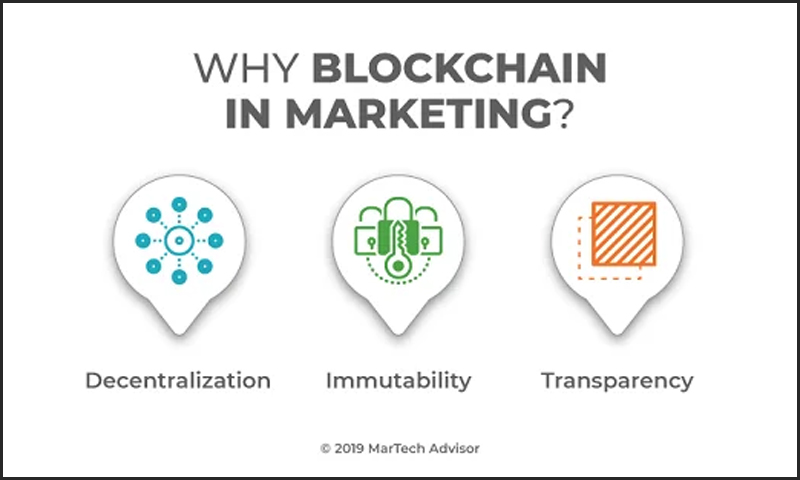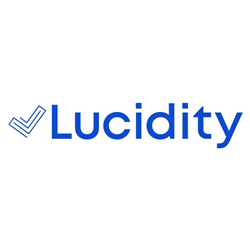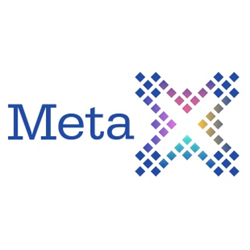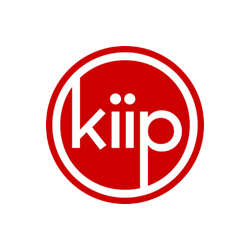Blockchain: The future of Marketing
What are Blockchains?
So, what exactly are blockchains? What is this fascinating piece of tech that we say will change the world? According to Merriam Webster Dictionary, Blockchains are “a digital database containing information (such as records of financial transactions) that can be simultaneously used and shared within a large decentralized, publicly accessible network.”
While this definition is correct, it is in fact, incomplete. To put it simply, Blockchains are an online, shared platform that may be used to record transactions, and track assets in a business network. It is a public ledger of sorts, where data is individually stored in separate ‘blocks.’ A ‘node’ is what verifies the transactions in the blocks. Since every block is chronologically arranged and separately verified by each node, it makes the technology highly secure. All this ensures that any transactions made through the chain, as well as any data stored will not be fraudulent, and cannot be hacked into.

The whole model of blockchains is based on person-to-person networking. Meaning that no one except the two parties in business will have access to the data and records on the blockchains, through private keys, hence making sure that no 3rd party is involved thus making it even more secure, valid, and reliable, at a reduced cost.
Why should Blockchain technology be part of Marketing and Advertisement?
The world has already entered a digital age, and recent events have only sprinted our efforts towards going to complete digitalization. Blockchains are the new big thing in the world, and this technology has many benefits. Let’s look at 3 reasons why blockchains should be adopted into marketing:

1) Decentralization
In a client server model, there is one or more entity or server that hosts all the information. And the client must access the server to gain access to this information. An example of this would be, online banking. If you want to send someone money through the internet, you will have to take assistance from a third-party agency, such as a bank to do so. In addition to having a middle-man in the equation, the information is always under threat of data leaks.
In retrospect, a blockchain is a person-to-person network, meaning that there is no single host of information, as every node in the chain stores and verifies information separately and locally. Meaning that you can send money to someone without any assistance from middlemen whatsoever.
2) Immutability
Blockchains document and confirm pseudonymous ownership of all existing coins within a cryptocurrency ecosystem at any given time through cryptography. Once this transaction is verified by users in the chain (using a math problem), a block is formed in the chain, and is arranged chronologically with the other blocks. Once a block is verified, it cannot be edited, and if any mistakes are made in the first block, another transaction must be made to reverse that mistake.
This system also makes it impossible to hack into, because if any information is edited in a verified block, it won’t configure with the data in the previous blocks. Since the whole chain is now altered, it will not be verified by any other node in the chain. Since the number of nodes in the blockchain are numerous, anyone hacking into it will have to hack the blockchain at every node, which is practically impossible.
3) Transparency
Since the blockchain is a P2P network that is decentralized, only the users of the blockchain have access to the transaction data that it stores. This also means that all users on the blockchain can see what transactions have been made through the user’s public key. However, the user’s identity will remain anonymous because most people and groups adopt an alias or a pseudonym. This not only ensures transparency, but also protects the person or groups privacy and anonymity.
So how can we implement this Tech in the Marketing Industry?
The question with introducing new technology in any new field, always begs the question? How can we implement this technology? Will it be beneficial? Will it be cost effective? Will it generate profit? Is it easy to use? And at the end of they day, the answers to these questions vary from organization to organization. However, there is no doubt that blockchain technology is going to play a major role in dynamics of the industry in the near future. In fact, with the recent success of crypto currency over the last 4-5 years, blockchains have already begun influencing the market. And keeping that in mind, here are some of the companies that have begun using Blockchains in the marketing industry:
1 REBEL AI
Location: Louisville, Colorado
How it’s using blockchain: Rebel AI uses a blockchain-based cryptographic verification system for advertisers and marketers to combat ad fraud. Unverified ad networks or counterfeit websites conceal marketing traffic data; thus, marketing teams and publishers are given distinct identities to help prevent “domain spoofing.”
By assigning IDs on a blockchain, Rebel AI can transparently look at who is running the ad, how long it’s been running for and who is paying for the ad, as well every interaction done with the ad by users on the website.
Industry Impact: NYIAX, a marketplace for advertising contracts, recently opted to adopt Rebel AI’s blockchain to ensure that media trading has a complete supply chain registry and that all contracts are genuine.

2 LUCIDITY
Location: Marina Del Rey, California
How it’s using blockchain: : Lucidity’s blockchain records, stores, and verifies all marketing data and marketing events in real time to ensure authentic and transparent data. It provides marketing employees real time feedback and insight of their current advertisement campaigns and helps track ad payments and interaction.
Industry Impact: Recently, automobile giants, Toyota saw a 21% ad lift after using Lucidity’s platform. Toyota was able to avoid wasteful spending by sing lucidity’s platform, which blocked websites and apps that had high levels of discrepancy.

3 IBM
Location: Armonk, New York
How it’s using blockchain: IBM is using its blockchain technology to verify the advertising supply chain. They have partnered with analytics platform Mediaocean to create a new media ecosystem that, will exist as a cloud-based system and will allow Mediaocean to model key media contract assets, including purchase order, media order, fee order, delivery verification, client invoice and supplier invoice. And since this will all be done a blockchain platform, participants will be able to see how much of their money is going towards working advertisement.
Industry Impact: IBM iX and Mediaocean are now working on deals to extend their platform to many multinational companies such as Unilever, Pfizer and Kellogg, for which the ledger will ideally eliminate the “ad-tech tax.” It will expand to other larger companies in the near future.

4 METAX
Location: Santa Monica, California
How it’s using blockchain: MetaX is utilizing blockchain to make the advertising supply chain more transparent. The adChain Registry, the company’s newest offering, provides marketers with a list of websites that offer high-quality, low-fraud digital advertising space. When a URL is submitted, registered members vote on whether the site is legitimate or not.
Industry Impact: The MetaX adChain Registry has verified more than 100 quality-approved sites, including Twitter, Esquire, Popular Mechanics and NPR.

5 KIIP
Location: San Francisco, California
How it’s using blockchain: Kiip is an in-app smartphone advertising platform that enables users to amplify advertising supply chain transparency and provide real time marketing data. All stakeholders participating in an ad campaign can examine and audit data immediately on the Kiip platform. It also makes some reporting and payment processing easier. Furthermore, the ‘Kiip Koin’ is a blockchain-based crypto that allows businesses to acquire media and manage campaigns using smart contracts.
Industry Impact: Partnering with beer giant AB InBev, Kiip launched the world’s first blockchain mobile ad campaign in July 2018, where AB InBev used the mobile platform to target customers and build data on their programmatic ad buying methods.

These are only few of the numerous examples of companies that have used blockchains to transform their marketing department and make it more efficient. As we can see, using blockchain technology has invoked a spark in the marketing industry with officials receiving marketing data on the fly and coming up with new and effective ideas to create unique, personalized and efficient marketing strategies. It has also helped companies save their money through the banning of counterfeit and fraudulent websites and applications. In 2021 itself companies have spent roughly 6.6 billion USD on Blockchain Technology, and this number is expected to rise to 19 billion USD by 2024. Despite this technology being relatively new, and in development, it is the future of marketing and advertising, and its effects are already being seen in the market. It only goes upward from here ladies and gentlemen.
Bibliography
1) https://en.wikipedia.org/wiki/Privacy_and_blockchain#Transparency
2) The Future of Digital Marketing Belongs to Blockchain Technology: Part 4 – Brace for impact! (linkedin.com)
3) 14 Blockchain Marketing & Advertising Companies to Know | Built In
4) Will Blockchain Play a Role in Marketing in 2020? | MarTech Advisor
5) What Is Blockchain in Marketing? Strategies, Best Practices, Benefits of Blockchain | MarTech Advisor
6) Blockchain in Retail Solutions | IBM
7) What is Blockchain Technology? – IBM Blockchain | IBM
8) Blockchain Definition: What You Need to Know (investopedia.com)
9) Lucidity | Blockchain-Audited Media for Greater Transparency in Advertising (golucidity.com)
10) Blockchain for advertising: The new black for media buying – Blockchain Pulse: IBM Blockchain Blog
11) Blockchain use cases | IBM Blockchain
12) IBM Blockchain – Enterprise Blockchain Solutions & Services | IBM
13) MetaX-Blockchain-based digital advertising platform fueled by adToken (ADT) (blockchainalmanac.com)
14) Blockchain In Advertising Use Case #2: MetaX – Disruptor Daily
15) Kiip and AB InBev Launch First Blockchain Mobile Ad (globenewswire.com)
16) Kiip undertakes ‘first’ blockchain-recorded mobile ad campaign (martech.org)
17) Rebel AI – Never Stop Marketing
18) Rebel AI’s Blockchain Technology Keeps Scammer Villians in Check (innovatorspeak.com)
19) Global spending on blockchain solutions 2024 | Statista





 Posted On December 31 2025
Posted On December 31 2025